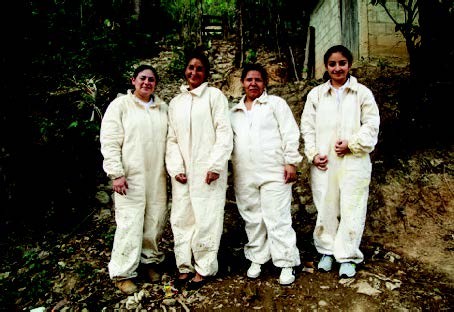- Work With USAID
- How to Work with USAID
- Organizations That Work With USAID
- Find a Funding Opportunity
- Resources for Partners
- Careers
- Get Involved
Speeches Shim

The aim of Lutheran World Relief’s (LWR) Gender in Agriculture from Policy to Practice (GAPP) project was to achieve political and cultural changes regarding attitudes toward women. It aimed to change the mindset and attitudes of men and women about gender equality, strengthen women’s capacity to advocate for food security in local public and private spaces in the rural sector, and better position women’s demands in municipal public policies and in the institutional policies of rural savings and loan cooperatives (Instituciones de Crédito Rural, ICRs).
The project provided trainings to women’s municipal networks on participation, leadership and public administration skills, empowering them to solicit public funding for their members’ agricultural enterprises. Men in the targeted communities also participated in masculinity training designed to promote changes in male attitudes towards equitable political and economic participation by women.
Local rural credit institutions were sensitized to issues related to women's equality and encouraged, through the project, to adopt women equitable policies and practices that would increase loan provision to women. The project also provided training and engagement opportunities, such as “knowledge fairs” and forums, to local government officials and civil society members to build their capacity to promote public policies that reduce inequalities between women and men and increase public funding for women-led enterprises.
Despite the diversity in the roles of and status of women in the agricultural sector, women receive lower incomes and experience greater food insecurity because they have less access to productive assets, technology, and agricultural extension and financial services. Women’s leadership in the agricultural sector remains limited by disparities in earned income and wages as well as limitations in political empowerment.
In recent years, the Government of Honduras has helped address the gender gap through several public policies, including the National Equal Opportunity for Women and food and nutrition laws. However, reports suggest the need for stronger implementation mechanisms at the regional and municipal levels.
By the close of the project, 3,176 women (127% of target) from nine municipal women’s networks (RMMs) participated in trainings and activities designed to strengthen their leadership skills to advocate for more investment in women’s agricultural activities. Their self-advocacy resulted in a total of 170 projects across the nine RMMs obtaining public funding for a total investment of $68,768.93 from the nine project municipal governments. Of the 429 men who participated in masculinity trainings, 74% (99% of target) indicated support for women’s leadership and greater agreement with the idea that men and women should have equal access to social, economic, and political opportunities. Through women’s advocacy initiatives and the support of men in the community, 56 rural savings and loan cooperatives (124% of target) increased the number of policies and practices that facilitate women’s access to financial services, and 30 ICRs (half of the local ICRs) increased the percentage of their portfolios that go to loans for women. Additionally, following sensitivity training of 636 government officials (235% of target), the nine project municipalities adopted laws, policies, and programs aimed at ensuring equal opportunities for women and improving food and nutritional security, which will promote women's equality.

Comment
Make a general inquiry or suggest an improvement.